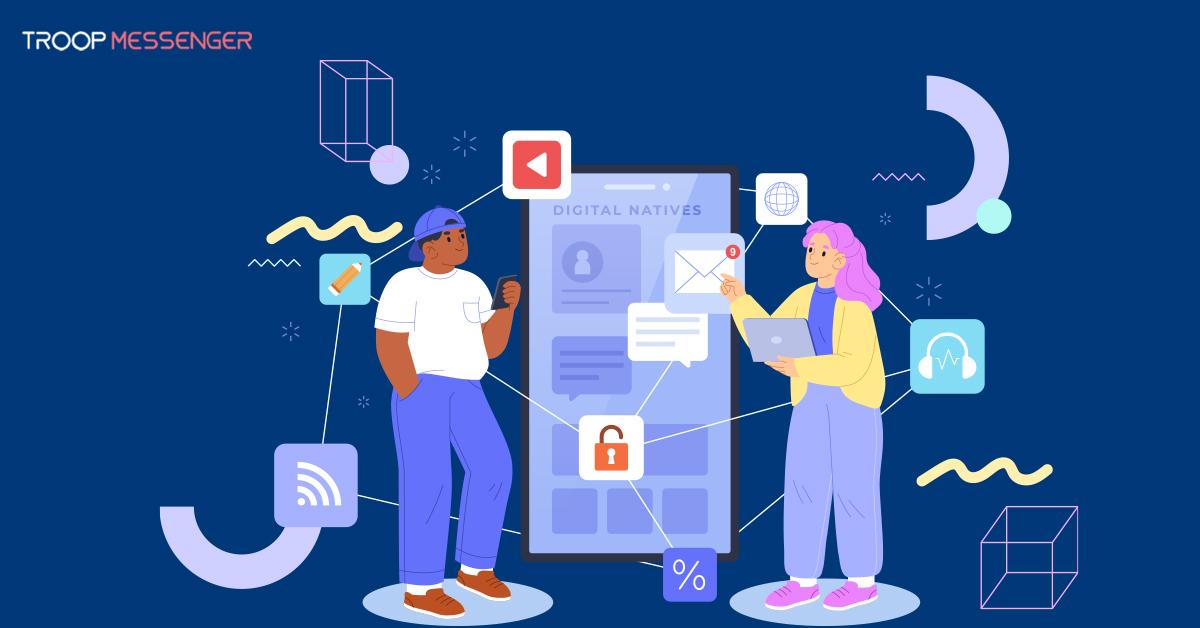Connect with us

Essential Security Measures for Messaging Apps
How Security Features Can Boost Trust in Messaging Apps?
Messaging apps are online platforms created for instantaneous interactions among individuals. They ease communication via text, voice, and video. They often let users share files, group messages, and use multimedia. Security, simplicity, and versatility drive messaging app choices. Pick one that encrypts chats, feels intuitive, and works across devices.
The ideal app must meet your communication needs. It should balance privacy, ease of use, and compatibility. Also, check for features like encryption and privacy settings, essential security factors for messaging apps. Standard options are WhatsApp, Signal, Telegram, and Messenger. They vary in security, personalization, and compatibility.
Threats to Messaging App:
The security issues related to personal data are specifically customized for every person. Users need to identify which particular information needs to be safeguarded. This might include messages, content, identity, metadata, and location, frequently covering all these elements. Every possible danger comes with unique obstacles to overcome, highlighting the importance of considering different aspects.
1. Data Leakage:
Unauthorized access to your messaging app's data can reveal much. This includes intercepting messages, exploring past chats, and retrieving cloud data. It also contains unnoticed infiltration. This scenario sets the stage for a variety of unexpected and damaging events. Consequences may include blackmail, aiding an impersonator, or falling for fraud.
2. Personal Location:
Sharing your location or your phone number can help an attacker. They could track your whereabouts and use your travel habits to plan an attack or sell the info.
3. Software Vulnerability:
Messengers may contain vulnerabilities that could result in more than the exposure of sensitive information. A dubious app from a sketchy source spells danger. Unknown downloads invite hackers, unleashing mayhem on your device. One-click could compromise your data, exposing personal info to cybercriminals. It is therefore essential to have a Code Signing certificate to ensure about software authenticity and integrity. Sectigo, DigiCert, or Comodo Code Signing certificate are few well-known certificates to secure software.
Stick to official app stores and trusted developers to safeguard your digital life. An unauthorized person could, undetected, take complete control of your device. Knowing that an attacker will gain nothing from taking control of a messenger account is crucial. While the account may not contain important information, it can still be utilized for DDoS attacks, sending spam, sharing harmful links, etc.
Essential Security Measures:
This article will discuss key security factors for messaging apps. They are vital for gaining users' trust. Let us have a glimpse of them.
End-To-End Encryption:
Developers must focus on user trust. They must include end-to-end encryption as a critical security feature. Making encryption easy for users is essential. Developers must use encrypted backups and end-to-end encryption. They are vital to gaining the trust of privacy-minded users. These measures protect sensitive data from unauthorized access. They build confidence in an era of heightened digital vigilance. You must also ensure your encryption methods are easy to understand for inclusivity. Specify the encryption level you provide with exact precision. Several messaging apps promote encryption, although they do not ensure end-to-end encryption.
Auto Erasing Message:
Every messaging application can incorporate self-deleting messages. You have the choice to have it active as the default option. In any case, provide a choice to turn on or off disappearing messages in the settings. It is best to let users choose how long to show their messages before disappearing. Auto-deleting messages should not leave traces. Skip server or cloud storage when activating this function. Once the messages vanish for the user, they should vanish everywhere else.
Security for Transactions and Media:
Feature-rich secure messaging apps are also available. Today, users want to send many types of media via messaging apps. It is possible to establish trust with users while still including more features. For example, you may need two-factor authentication for every financial transaction. Third-party tools streamline the process for such financial transactions. The developers of these tools have optimized them for security. Make sure to include pictures and videos when encrypting your data as well. Enabling auto-deletion or disappearing settings for media is crucial as well. This means that if a user sends both a text and a photo concurrently, they should disappear simultaneously.
Two-Factor Authentication:
Two-factor authentication reigns supreme in digital security, setting a new protection benchmark. This widespread safeguard is everywhere online, from social media giants to banking apps. 2FA adds a crucial second verification layer, balancing robust security with user convenience. It has many authentication methods, from biometrics to one-time codes. They are ideal for messaging platforms. 2FA adds a step beyond passwords. It thwarts unauthorized access while keeping things simple. This widespread use of digital services shows it works. It can protect user accounts from modern cyber threats. Mobile security features like 2FA also play a key role in securing personal data stored on smartphones, which hackers often target.
Multiple Registration Methods:
Several messaging applications cause users to create an account using a phone number. This exposes vulnerable users to considerable danger. Some governments limit and check communication. This puts users at risk when sharing information—trust blossoms when messaging apps provide diverse sign-up choices. Vulnerable users feel safer with flexible registration options. Many ways to join invite broader participation and foster a sense of security. This will encourage them to join. An illustration could be enabling email sign-up. Anonymous registration options help protect at-risk users from harm when interacting with others.
Screenshot Prevention:
Screenshots compromise messaging security. Disabling them by default is a wise move to guarantee the highest user trust. If you do not block screenshots, consider setting up alerts for when a user captures one. For example, when you snap a screenshot on Snapchat, your chat partner gets an alert. This feature shows the app's commitment to user privacy and transparency. This applies to any texts, snaps, videos, or stories.
Open Source Code:
An open-source messaging app provides the benefit of extensive security evaluations. This method lets both amateurs and experts help the app. They can test its operation and find security flaws in the server and client. The openness allows for scrutiny. Nevertheless, it raises the risk. Malicious users could exploit any vulnerabilities before the community fixes them. Open-source code does not guarantee user data security. However, it helps improve it.
Exposing data to third parties:
Specialized services, law enforcement, or other government bodies could be considered third parties. Some messaging apps willingly work with these organizations, while others refuse to share personal data. An assailant can pose as anyone, even a government official, to gather sensitive data. Whether you follow the law or not, it is vital to remember this factor when choosing a secure app to avoid any potential misuse of your personal information.
Sign-Up Process:
Making a new account on a messaging app often requires your cell phone number. It's an essential piece of info tied to your identity. Even though it may not affect data security, it significantly weakens anonymity. The more information needed to sign up, the less anonymous you are. Sometimes, an email address is enough. The app may also ask to access contacts or read incoming messages for verification. Sometimes, the app must verify your number to complete the sign-up process.
Peer-to-Peer Communication:
In a peer-to-peer configuration, messages are delivered directly to the recipient's device without involving any intermediaries. Nevertheless, this strategy has its disadvantages. It continues to reveal the participants' (usernames) and the length of their engagement, slightly reducing anonymity and privacy.
Conclusion:
The above-discussed security factors for messaging apps help to build users' trust. For messaging apps to be successful, users need to have confidence in them. Privacy leads to trust. Strengthen self-assurance with solid security measures. Use end-to-end encryption to protect conversations. Let users choose to make short messages disappear after sending. Activate two-factor authentication to enhance account security.








